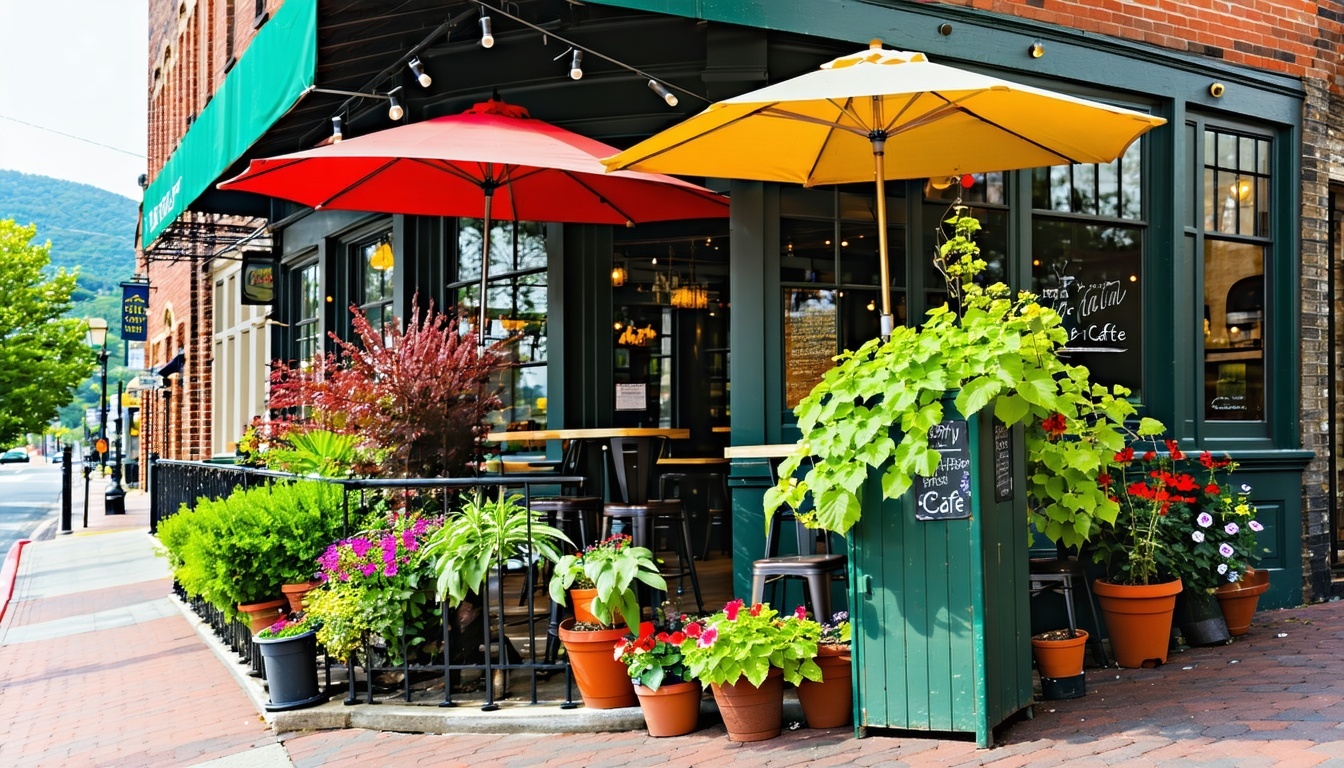Funding Restaurants and Cafés in Asheville, NC
Asheville, North Carolina, is known for its vibrant culinary scene, artisanal coffee shops, and farm-to-table restaurants. If you're planning to open, expand, or upgrade a restaurant or café in the area, accessing the right funding can make all the difference.
This guide covers the top funding options for restaurants and cafés in Asheville, including SBA loans, equipment financing, and city or community-backed programs.
1. Why Asheville Food Businesses Need Strategic Financing
Restaurants and cafés face high upfront costs and ongoing capital needs. Common expenses include:
-
Kitchen equipment (ovens, ranges, refrigeration)
-
Interior buildout and seating upgrades
-
Licensing, health permits, and insurance
-
Payroll and initial inventory
-
Marketing and delivery logistics
-
Outdoor dining installations or remodeling
Financing can help businesses smooth out these costs and scale operations without depleting working capital.
2. SBA Loan Options for Asheville Food Businesses
The Small Business Administration backs several loan programs perfect for restaurant owners:
SBA 7(a) Loans
-
Can be used for equipment, renovations, working capital, or real estate
-
Longer terms and lower interest rates than conventional loans
SBA 504 Loans
-
Ideal for buying a building or large-scale kitchen equipment
-
Provides fixed-rate, long-term financing for fixed assets
-
Requires a down payment and a CDC partner
SBA Microloans
-
Offers up to $50,000
-
Great for new cafés or food trucks with limited credit history
-
Often paired with technical assistance and business training
These loans are especially useful for startups and expanding restaurants that need flexible capital.
3. Equipment Financing and Leasing
Commercial kitchen equipment can cost tens of thousands of dollars. Equipment financing allows:
-
Quick access to ovens, freezers, espresso machines, or POS systems
-
Monthly payments instead of large upfront purchases
-
Use of equipment as collateral, simplifying approval
Leasing is also an option, giving business owners a chance to upgrade regularly and preserve working capital.
4. Working Capital Loans and Lines of Credit
Restaurants often need short-term funding to manage:
-
Seasonal cash flow dips
-
Vendor payments
-
Unexpected repairs
-
Payroll gaps during off-seasons
A business line of credit or short-term working capital loan gives access to flexible funds that can be drawn and repaid as needed.
5. Community-Based and Local Lending Programs
Asheville has a growing number of small business resources that offer:
-
Microloans for startups or underserved founders
-
Low-interest loan programs for businesses in designated districts
-
Grants tied to job creation, sustainability, or historic preservation
-
Peer lending circles or crowdfunding supported by local business associations
These programs are often easier to qualify for than traditional bank loans and may include mentoring or training.
6. 7-Step Funding Strategy for Asheville Restaurants
-
Determine your funding need: equipment, buildout, inventory, or cash flow
-
Choose the right financing option: SBA, equipment loan, local microloan
-
Prepare financial documents and a business plan
-
Get vendor quotes for major expenses
-
Contact multiple lenders for prequalification
-
Apply for the loan with complete documentation
-
Use funds strategically to improve operations and drive growth
7. Comparing Restaurant Funding Options
| Funding Type | Best For | Considerations |
|---|---|---|
| SBA 7(a) Loan | Expanding operations or refinancing debt | Requires strong credit and detailed paperwork |
| SBA 504 Loan | Real estate or high-cost equipment | Requires a down payment and fixed assets |
| SBA Microloan | New cafés, food trucks, or pop-ups | Smaller cap, good for startups |
| Equipment Financing | Kitchen appliances, POS, delivery gear | Equipment acts as collateral |
| Working Capital Line | Seasonal dips, staffing, vendor payments | Flexible draw-and-repay terms |
| Local Microloan or Grant | Underserved areas or new entrepreneurs | Often includes technical support |
8. Real-World Example
A couple launching a sustainable café in downtown Asheville used:
-
A $45,000 SBA microloan for kitchen equipment and signage
-
A local $15,000 grant for sustainable business practices
-
A $20,000 line of credit for initial inventory and working capital
This combination allowed them to launch with minimal personal risk and create eight new jobs in their first year.
Final Takeaway
Asheville’s food and beverage scene is ripe for growth—and there are many funding pathways to support restaurant and café owners. Whether you’re launching your first location, remodeling an existing space, or adding delivery services, there are options available to meet your needs.
✅ What to Do Next
-
Clarify how much capital you need and for what
-
Choose a loan type that aligns with your goal
-
Prepare your business plan and financials
-
Reach out to local lenders, SBA partners, and community programs
-
Compare offers and use funds efficiently to grow your Asheville-based food business
Need help planning your financing strategy or preparing your application? Let’s work together to get your restaurant or café funded and thriving.






